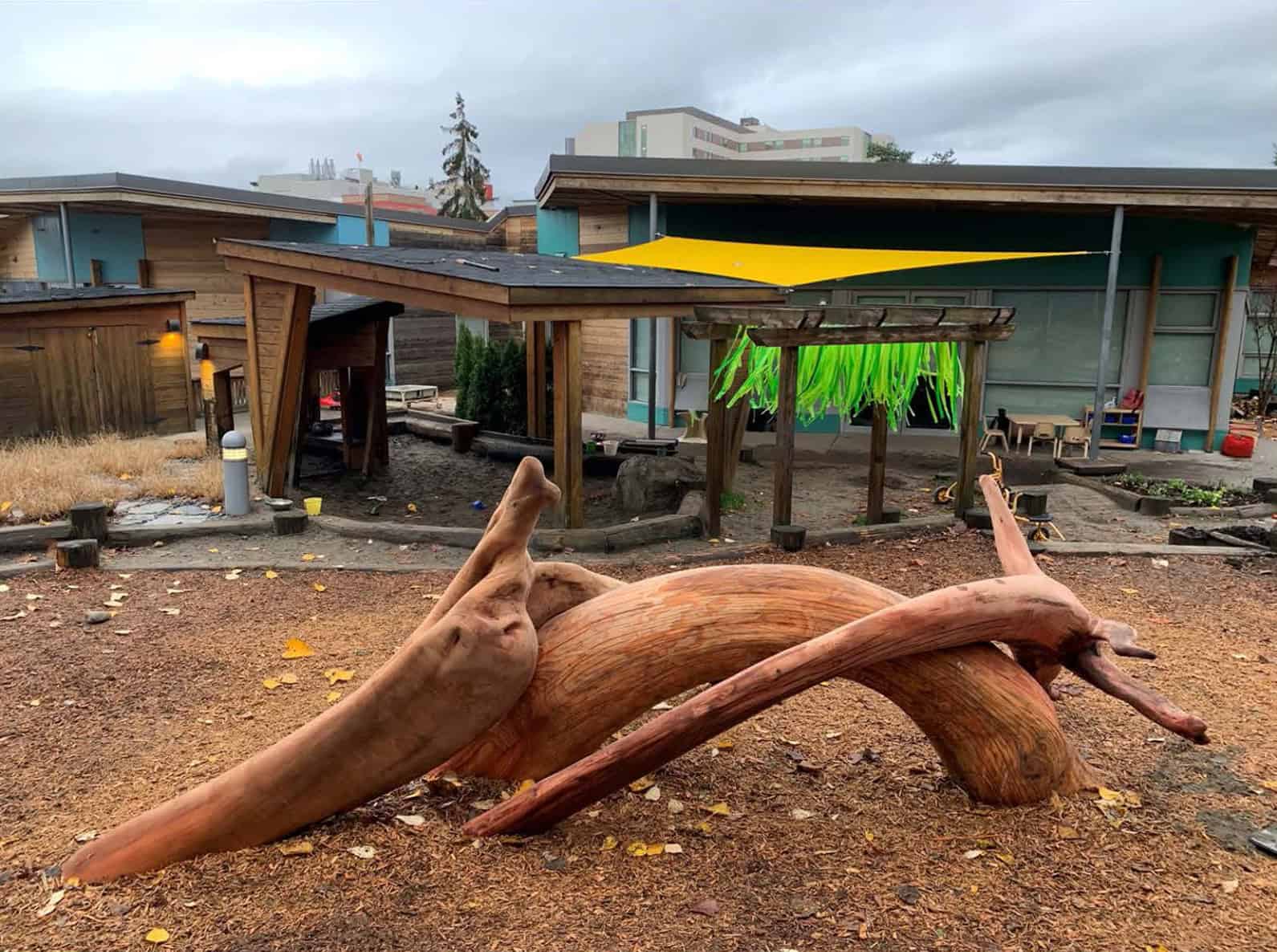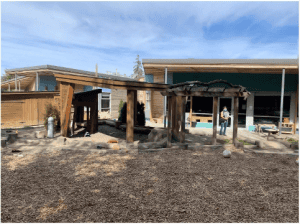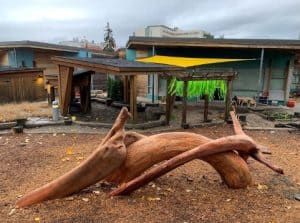
Results from the PROmoting Early Childhood Outside study offer insights on ways to increase children’s outdoor play participation in early learning and child care centres
When it comes to children’s experiences at early learning and child care (ELCC) centres, how much outdoor play are children actually participating in – and can it be improved? New research from the Outside Play Lab at the University of British Columbia demonstrates that increasing children’s outdoor play participation at ELCC centres requires an adaptable and sustainable approach that considers the unique needs of each centre.
The PROmoting Early Childhood Outside (PRO-ECO) study examined how a comprehensive outdoor play program influenced preschool-aged children’s play behaviours during scheduled outdoor time at ELCC centres. Conducted across eight YMCA of Greater Vancouver ELCC centres, the study included 217 children aged 2.5 to 6 years. The PRO-ECO program was thoughtfully designed to enhance outdoor play opportunities through four key components: educator training; family engagement; outdoor space enhancements; and centre policy development.


Example of an outdoor space modification before (left photo) and after (right photo) the PRO-ECO program.
The eight ELCC centres were randomly assigned to receive the PRO-ECO program first or to be waitlisted to receive it later. The PRO-ECO study observed children’s play behaviours outdoors at three time points: before any changes were made, after the first four centres received the program and after all eight centres received the program. The main outcome of interest was measuring whether there was an increase in play behaviour, compared to non-play behaviour.
The results of the study highlight children’s diverse play behaviours at ELCC centres, with 81.7% of all observations coded as some form of play (versus 19.3% as non-play) across all three time points. High play participation prior to the PRO-ECO project implementation meant that measuring increases in play was challenging, and further analyses are currently underway to explore whether there were changes in specific types and forms of play. For example, whether there were any differences in physical play, activity level, cooperative play with peers and/or risky play behaviour before and after the project. Beyond these findings, the study uncovered valuable insights for supporting outdoor play initiatives in ELCC centres.
Maintaining sustainable changes. Long-term sustainability can be a challenge without proper planning, resources, and support. The ELCC centres participating in the PRO-ECO study experienced challenges sustaining educator training due to staff recruitment and retention challenges. In addition, some of the changes made to the outdoor play spaces (e.g., planting, loose parts) were impacted by extreme weather or limited maintenance. Providing new and existing staff with access to regular training refreshers and ongoing mentorship, as well as allocating resources for outdoor space maintenance can help address these challenges.
Fostering dynamic outdoor environments. The PRO-ECO study found a short-term boost in play participation that gradually declined over time. This may be associated with the staffing challenges discussed above, and also suggests the importance of making sure the outdoor play environment is dynamic, flexible and adaptable. This can be done by ensuring a continual supply of engaging loose parts materials, as well as focusing on the role of educators in adding provocations to the outdoor space to support different kinds of play.
Engage families as partners. Children’s families play a pivotal role in fostering outdoor play both within and beyond the ELCC centre. The PRO-ECO study experienced challenges engaging families due to COVID-19 public health and centre-specific restrictions. This limited families’ access to the ELCC centres, and their opportunities to be involved and witness why their child’s outdoor play was important. Including diverse ways of engaging families is critical, either in person, through virtual resources, take-home activities, outdoor family events or other ways of connecting that suit their needs.
The PRO-ECO study reminds us that there’s no one-size-fits-all formula that works in every community. Each ELCC centre is unique and the effectiveness of outdoor play supports vary depending on the centre’s needs and context. Tailoring policies, educator training, and space enhancements to a centre’s specific needs ensures they are more impactful and sustainable. Ensuring ongoing resources to support educator training and outdoor maintenance helps outdoor play programs thrive beyond initial implementation.
Future analyses from the PRO-ECO study will examine different types of play behaviours and qualitative feedback from educators, to provide a more complete picture of how the PRO-ECO study impacted children’s experiences. Stay tuned for more takeaways from this research!
For more information, check out:
PRO-ECO Results Paper: https://www.nature.com/articles/s41598-025-85397-1
Outside Play Lab & the PRO-ECO Project: https://www.outsideplay.org/research/promoting-early-childhood-outside-pro-eco-1-0

